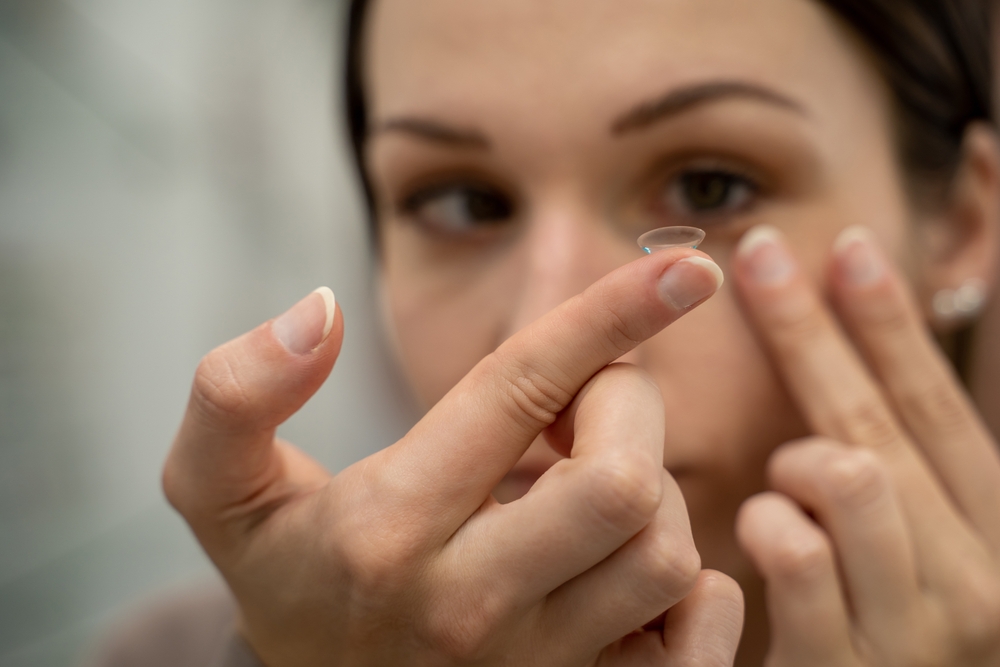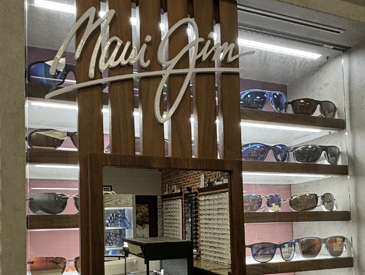When Glasses Aren’t Enough: The Role of Specialty Contacts in Vision Correction
Blog:When Glasses Aren’t Enough: The Role of Specialty Contacts in Vision Correction

When Glasses Aren’t Enough: The Role of Specialty Contacts in Vision Correction
For many people, glasses are the go-to solution for vision correction. They’re convenient, stylish, and effective for most common refractive errors such as nearsightedness, farsightedness, and astigmatism. But what happens when glasses aren’t enough to give you the clear, comfortable vision you need? For some individuals, specialty contact lenses can be a life-changing solution.
Understanding When Glasses Fall Short
Standard eyeglasses do an excellent job for many people, but there are certain conditions where they might not provide the clarity or comfort required. For instance, individuals with irregular corneas such as those with keratoconus experience a cone shaped or uneven cornea, which makes it difficult for traditional glasses to correct their vision effectively.
People with very high levels of nearsightedness or farsightedness may also find that glasses cause distortion or limit their peripheral vision. Similarly, corneal scarring or changes that occur after eye surgery can alter the shape of the cornea, reducing the effectiveness of glasses as a vision correction tool.
In addition, those who suffer from severe dry eye may find glasses uncomfortable or inadequate for achieving clear and comfortable vision throughout the day. In these situations, specialty contact lenses may offer a better solution.
What Are Specialty Contact Lenses?
Specialty contact lenses are designed to address unique vision challenges that standard soft lenses or glasses can’t always fix. They come in several forms:
• Scleral Lenses: These large-diameter lenses rest on the white part of the eye (sclera) and vault over the cornea. They’re especially effective for irregular corneas and dry eye.
• Rigid Gas Permeable (RGP) Lenses: Unlike soft contacts, RGP lenses maintain their shape and can provide sharper vision for certain conditions.
• Hybrid Lenses: Combining a rigid center with a soft outer ring, hybrid lenses offer the clarity of RGP lenses with the comfort of soft lenses.
• Custom Soft Lenses: For those with high or unusual prescriptions, custom soft lenses can be crafted to provide the exact vision correction needed.
Who Can Benefit from Specialty Contacts?
Specialty contact lenses are often recommended for patients who:
• Have been diagnosed with keratoconus or other corneal irregularities
• Experience significant astigmatism not fully corrected by glasses
• Have undergone corneal surgery, such as LASIK or corneal transplants
• Need sharper vision for demanding activities, such as sports or certain occupations
• Struggle with comfort or clarity in traditional glasses or soft contacts
The Fitting Process at Texas State Optical
Fitting specialty contact lenses is a personalized process. At Texas State Optical, our optometrists use advanced diagnostic technology to map the unique contours of your eyes. This allows us to design and fit lenses that provide optimal vision and comfort. You’ll also receive training on how to insert, remove, and care for your specialty lenses, ensuring a smooth transition and ongoing eye health.
Take the Next Step Toward Clearer and More Comfortable Vision
While glasses are an excellent choice for many, they aren’t always the final answer for everyone’s vision needs. Specialty contact lenses offer new hope and improved quality of life for people with complex vision challenges. At Texas State Optical, we’re dedicated to finding the right solution for every patient - whether that’s glasses, traditional contacts, or specialty lenses.
Schedule an eye exam with Texas State Optical and discover the specialty contact lens that’s right for your unique eyes. Visit our office in Magnolia, Texas, or call (281) 946-2020 to book an appointment today.


